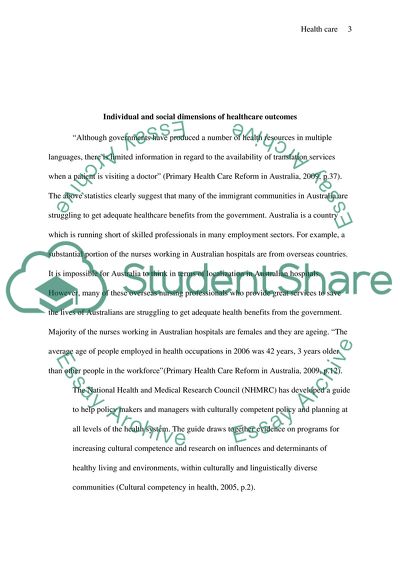Cite this document
(Health Care Outcomes as a Social Issue Essay Example | Topics and Well Written Essays - 1500 words - 1, n.d.)
Health Care Outcomes as a Social Issue Essay Example | Topics and Well Written Essays - 1500 words - 1. https://studentshare.org/sociology/1760250-health-care-outcomes-are-a-social-issue-not-just-an-individual-responsibility-critically-assess-this-statement-in-the-light-of-relevant-social-research
Health Care Outcomes as a Social Issue Essay Example | Topics and Well Written Essays - 1500 words - 1. https://studentshare.org/sociology/1760250-health-care-outcomes-are-a-social-issue-not-just-an-individual-responsibility-critically-assess-this-statement-in-the-light-of-relevant-social-research
(Health Care Outcomes As a Social Issue Essay Example | Topics and Well Written Essays - 1500 Words - 1)
Health Care Outcomes As a Social Issue Essay Example | Topics and Well Written Essays - 1500 Words - 1. https://studentshare.org/sociology/1760250-health-care-outcomes-are-a-social-issue-not-just-an-individual-responsibility-critically-assess-this-statement-in-the-light-of-relevant-social-research.
Health Care Outcomes As a Social Issue Essay Example | Topics and Well Written Essays - 1500 Words - 1. https://studentshare.org/sociology/1760250-health-care-outcomes-are-a-social-issue-not-just-an-individual-responsibility-critically-assess-this-statement-in-the-light-of-relevant-social-research.
“Health Care Outcomes As a Social Issue Essay Example | Topics and Well Written Essays - 1500 Words - 1”. https://studentshare.org/sociology/1760250-health-care-outcomes-are-a-social-issue-not-just-an-individual-responsibility-critically-assess-this-statement-in-the-light-of-relevant-social-research.


